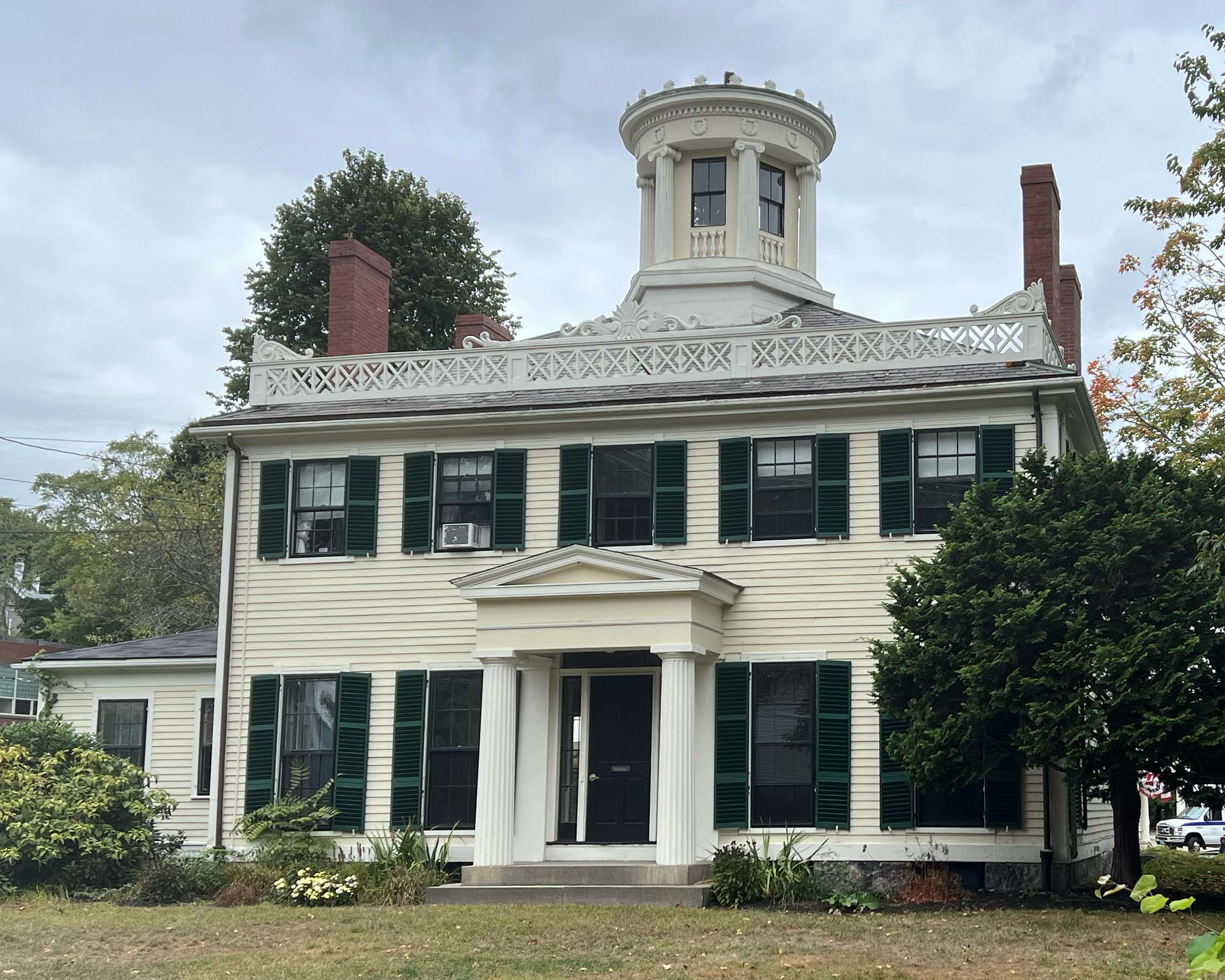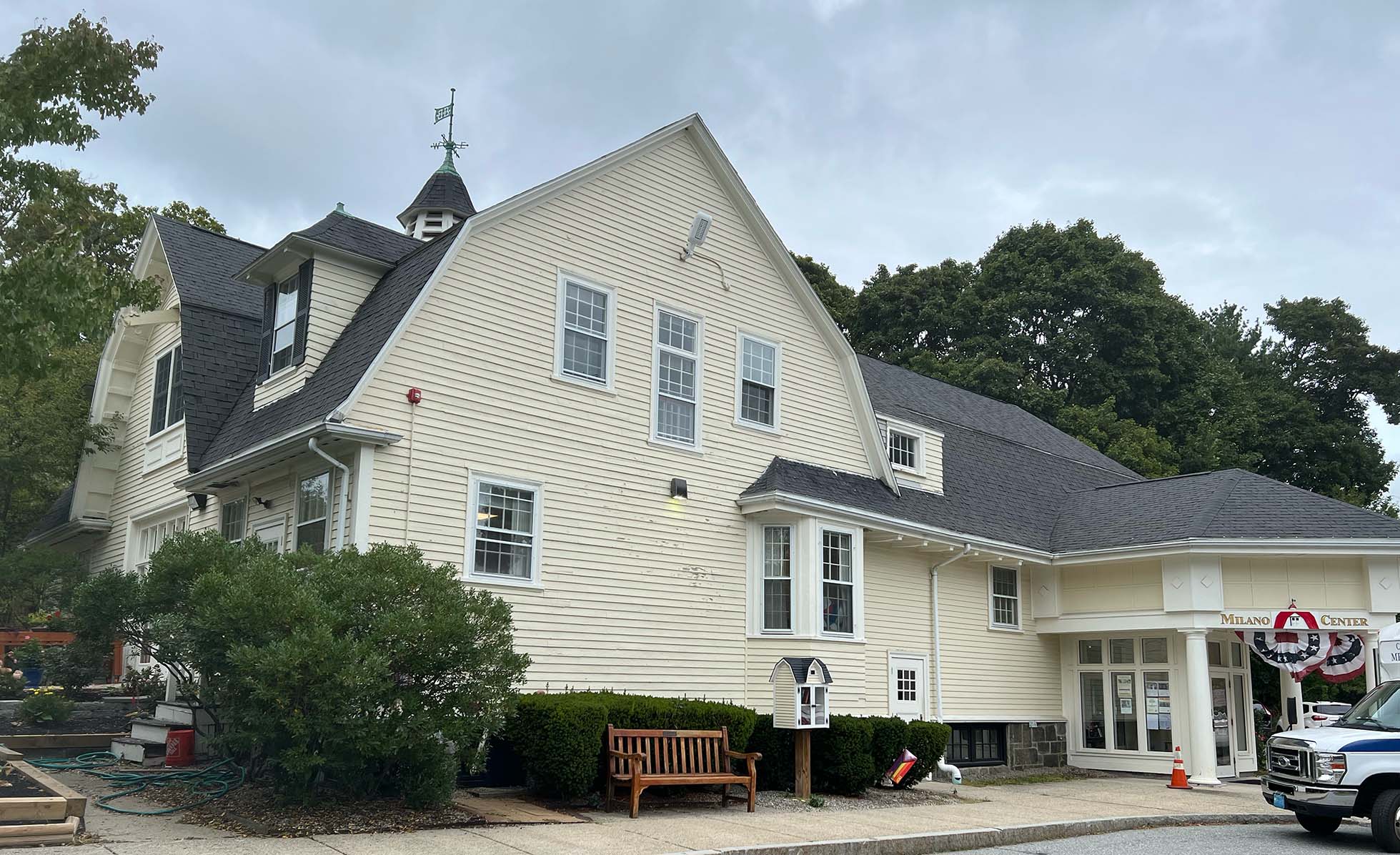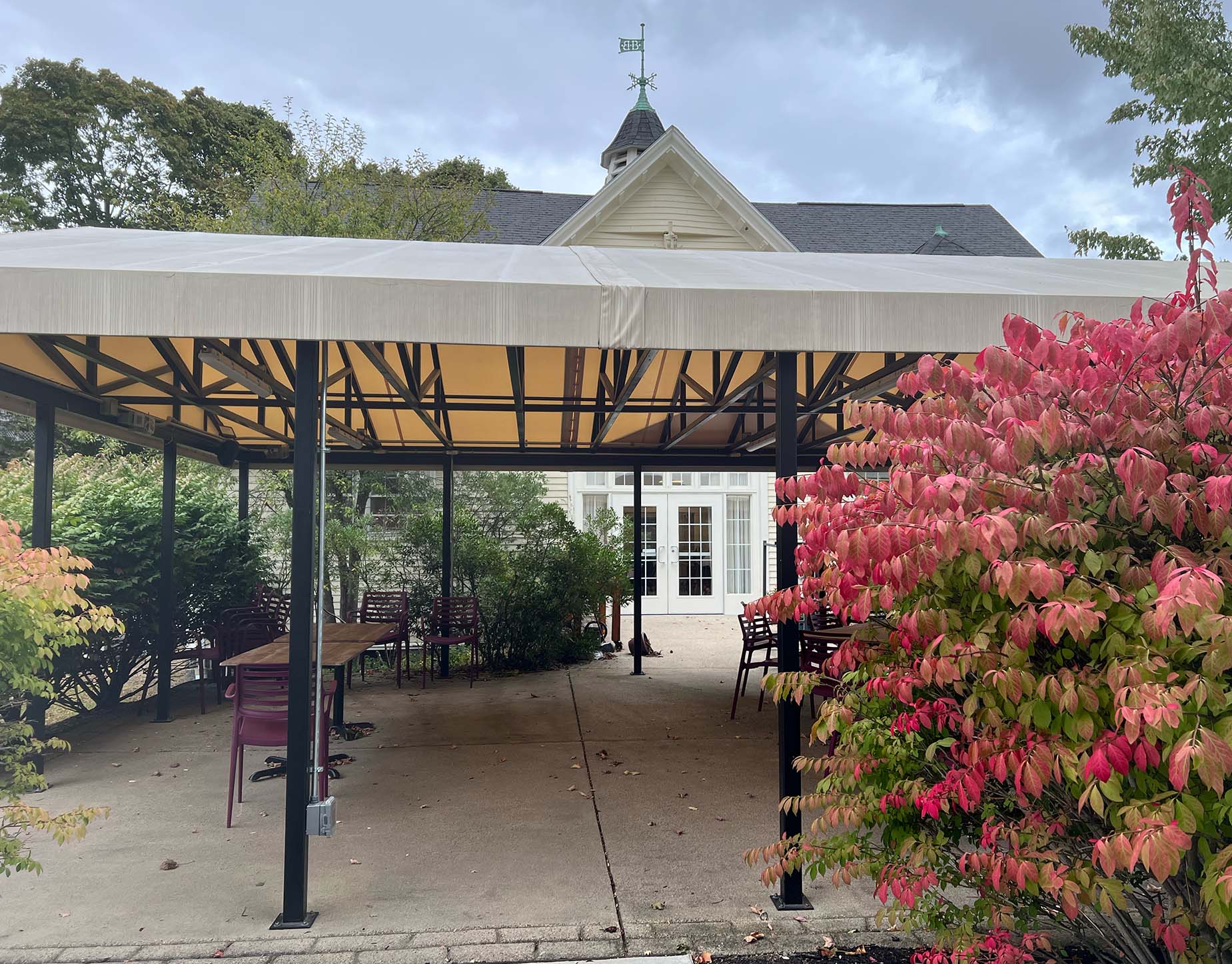Milano Center Appreciates Rich Past, Looks Toward a Strong Future Supporting Seniors
By Patrick DeVivo

The Beebe Estate House
In 1898 Decius Beebe could look out the front door of his home on what is now West Foster Street in Melrose and see little of what we see from that perspective today. Facing south, he would probably see groups of newly built houses on open land on the west side of town extending to the area that came to be known as Cork City, a nod to the Irish immigrants of the mid-1800s. Off to the east he would see some of the earliest buildings of what would become downtown Melrose. And running relentlessly north and south through it all, he would see and hear the pounding trains of the Boston and Maine railroad, the source of much of the emerging area’s wealth at that time.
A prominent local merchant and tannery owner, Beebe inherited this property through his marriage to Katherine Bigelow, the daughter of a prominent local family instrumental in the area’s development, including the founding of Melrose Hospital. The property remained in the Bigelow/Beebe family until the youngest of the two unmarried Beebe daughters, Sylenda, passed away in 1963. In that same year the property, including its attending carriage house, was purchased by the city of Melrose.
The city’s plan for the property to be developed into an activities and cultural center was delayed in favor of the more immediate needs of the city for administrative office space. It wasn’t until 1997 that the Melrose Council on Aging moved into the former Beebe home and transformed the carriage house into the Milano Center, named in honor of James Milano, the longest serving Melrose mayor to date.

The Milano Center
Today the Milano Center generates a wide range of services and activities for Melrose residents aged 60 and older. The holistic menu of activities promotes health and fitness (a walking club, exercise classes, blood pressure screenings); intellectual stimulation and lifelong learning (lectures, workshops, painting classes, book clubs); and social relationships and inclusion (gaming groups, a garden club, daily lunch groups). The Center also connects older adults with resource counseling for financial stability, food security and other necessities.
The Milano Center also provides seniors with financial and legal counseling and transportation services for medical appointments, shopping events, plays and concerts in and around Melrose.
The Center’s staff includes a Social Services Coordinator, three Program Coordinators, six drivers and an administrative staff of four. The city funds a portion of the Center’s operating budget, while grants from the commonwealth and private sources make up the remainder of the Center’s revenue. A recent grant of $10,000 from the Foundation Trust allowed the Center to complete construction of an outdoor pavilion on the grounds.
Erica Brown is the Milano Center’s Executive Director. Brown sees the Center’s role through a wide lens that includes the entire Melrose community:
“We work with other city departments to provide efficient, all-encompassing services. Every department has something to offer, and we try to bring all city services into our building as one accessible location. We have a no-wrong-door policy, and we always try to help or make warm referrals instead of giving people a phone number to call on their own. If we know the person we’re referring to, we always try to reach out on the older adult’s behalf to make sure the right service is provided. We also act as a springboard for organizations outside of city government. Our social services coordinator is very knowledgeable on almost everything an older adult may call about. We handle a huge variety of requests from housing assistance to food security.”

The New Pavilion at the Milano Center
The stately Victorian-era design of the former Beebe property belies the progressive and creative work of the Center’s staff. They address a uniquely contemporary challenge for communities such as Melrose with a population that is living longer, healthier lives. The Center’s formal mission statement reads: “To connect older adults with programs, resources, and services in our community to generate a positive impact on daily living.” The Center’s staff is challenged to design and deliver services that tap into the unique experiences and acquired wisdom of Melrose seniors while providing these seniors with opportunities to continue to make meaningful, fulfilling contributions to the community.
Brown speaks passionately about the Center’s current activities, one of which is submitting a pledge from the Commonwealth to be certified as an Age Friendly/Dementia Friendly facility. This certification would assist the Center in obtaining grant money for additional projects like a Memory Café where, in a safe space, seniors and their family members can interact and participate in activities and programs with others experiencing the same challenges.
Another goal of Brown’s is to supplement the Center’s monthly newsletter, Looking Ahead with a one page resource guide. The guide will provide all-encompassing contact information on necessary services (housing, transportation, food security, legal and financial services, etc.) in and around Melrose.
Finally, the Center is working with UMass Boston to conduct a Community Needs Assessment. This assessment will inform the strategic planning and the development of the Center’s goals for the next three years.
Like many of his time, Decius Beebe’s life was, by our standards, relatively short; he died at the age of sixty-three. He may never have envisioned a day when lifespans would extend ten, twenty, thirty or more years beyond his own. He also never had to face the particular challenges, difficulties and opportunities that accompany a longer life. Nonetheless, a large portion of his legacy to Melrose is associated with an organization whose overarching purpose is to enable seniors to meet those challenges, overcome those difficulties, and take advantage of those opportunities that a long vibrant life offers.

Follow Us: